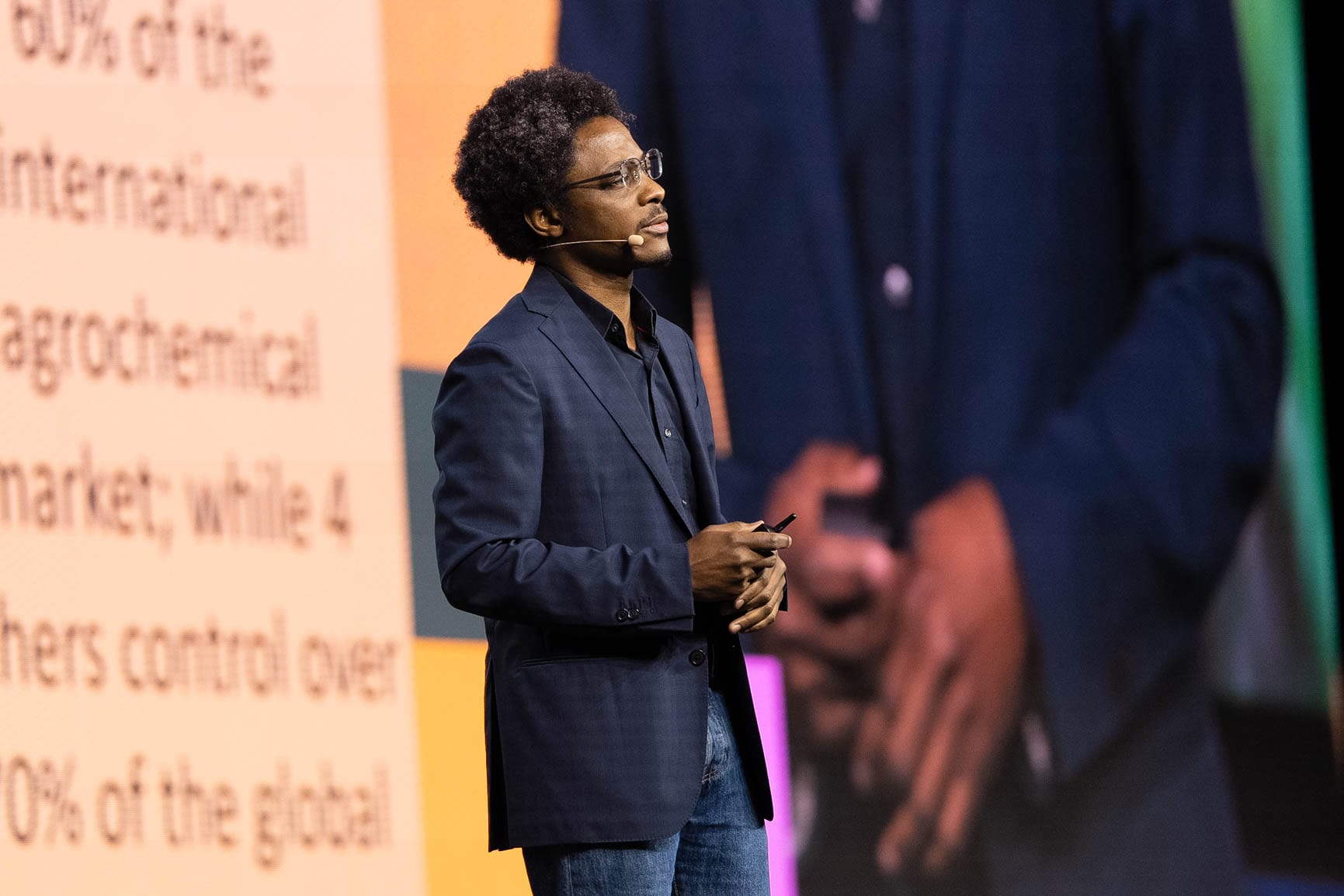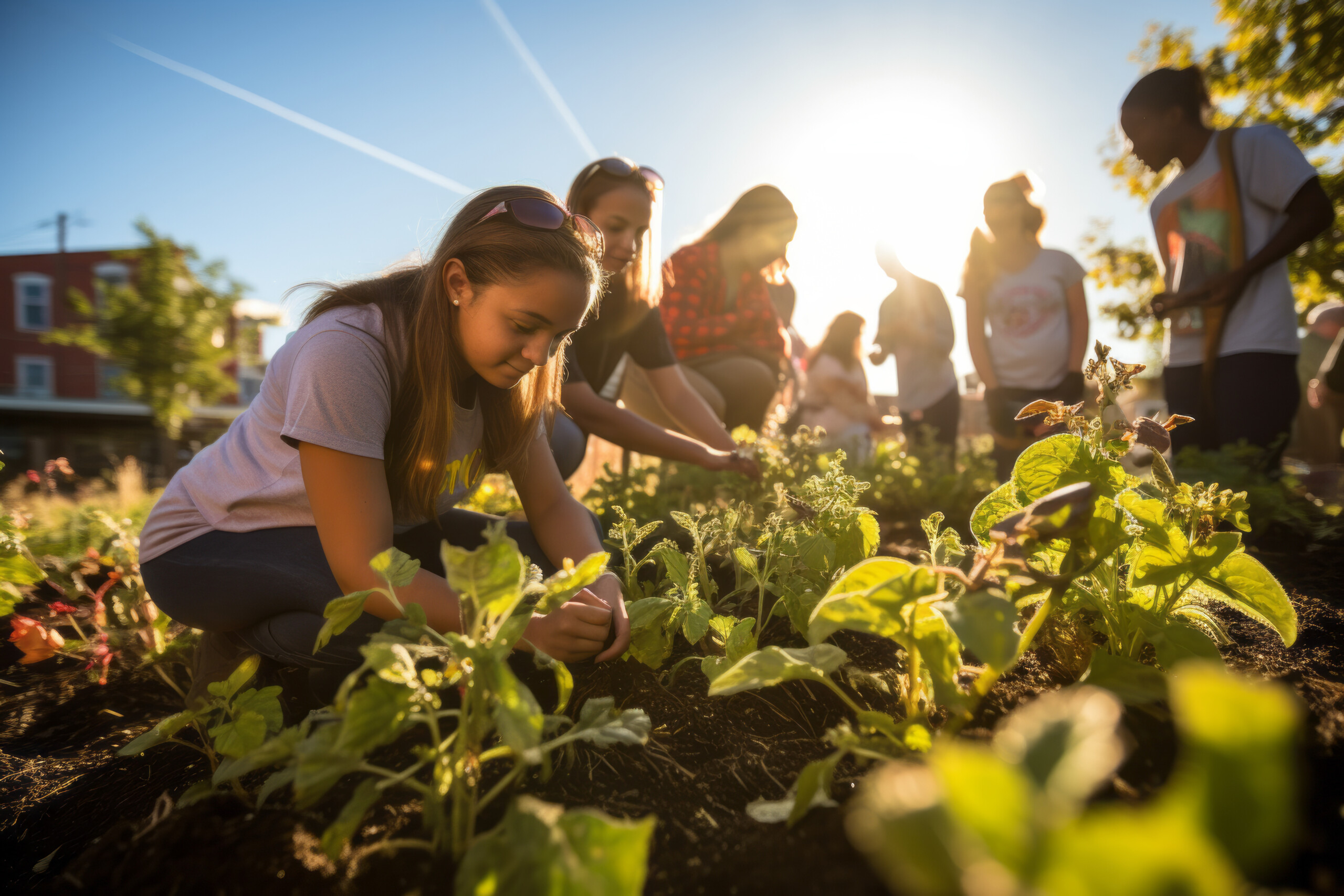Five unconventional (but necessary) ways to view the global sustainability challenge through a social lens
Youth climate rallies, rising costs of living, food insecurity and farmers taking tractors to the streets in protest. To solve the world’s environmental problems Dr Lewis Akenji, Managing Director of the Hot or Cool Institute, says we need to tackle social tensions first – and that means addressing food systems sustainability with a five-step approach for a future-fit agrifood culture.
When thinking about climate change, Lewis sits at the intersection of the environment, economics and society.
He’s the lead author of a report taking a consumption-based accounting approach to map the lifestyle carbon footprint of citizens in selected countries, considering the 1.5 °C target under the Paris Agreement on climate change.
The report, ‘1.5 Degree Lifestyles: Towards a Fair Consumption Space for all’ shows large disparity between countries in terms of emissions. For example, Canada has 13.6 tonnes of CO2 per year per capita, while India has three tonnes.
RELATED: Balancing the emissions budget: The interplay of lifestyle, technology and sustainability
Lewis said all countries need to make cuts to be carbon-zero by 2050, while at the same time many developing countries need to address food security.
“It’s the top 10% of income earners around the world who are responsible for about 50% of the emissions that have caused the climate change problem.”
So, in a world of significant socio-economic pressures, how do we maintain productivity while reducing our environmental footprint?
Lewis believes we should look at the problem in five ‘unconventional’ ways.

Dr Lewis Akenji, Managing Director of the Hot or Cool Institute.
1. Flip the approach to eco-certification
“The certification process is so costly and time consuming, and we also know that it’s prone to abuse and this is why it’s highly distrusted by consumers,” Lewis said.
He advocates for flipping the approach to instead ask unsustainable producers to justify their value to society, including setting minimum standards for foods and banning toxic chemicals in food systems.
2. De-commodify food
“There are about 800 million undernourished people around the world, 50% of them in Asia,” Lewis said.
He argues that food should be viewed as a fundamental need and treated like universal health care with not-for-profit provisioning for basic meals, banning retailers from throwing away un-used food and clauses to reduce waste across the supply chain.
“We should stop speculative financial investment in something that is so essential to everybody. You can still buy food, you can still sell food, but it is not for profiteering.
RELATED: Accelerating transformation to achieve a more sustainable global food system
3. Think of food from a social perspective
Lewis said as a society we’ve evolved to consuming food along with social functions – it’s better for us and gives us more satisfaction.
“Community gardens are quite important. So are community kitchens, food sharing approaches, and even just family dinners, instead of eating alone,” he said.
“Traditional approaches such as Indigenous, healing foods also need to be reflected in the approaches that we’re taking.”

Dr Lewis Akenji (right) at the evokeAG. 2024 Welcome Event.
Lewis points to Berlin, where it’s estimated 80% of fresh vegetable demand could be met from urban agriculture.
“How can we reflect things like urban gardens and shared spaces as a mandatory part of large-scale constructions and developments is what we need to consider,” he said.
4. Differentiate between ‘big power guys’ and small farmers
Lewis points to the imbalance between large corporate and multi-nationals both in terms of political lobbying, technological advantage, and supply chain control.
“The top four firms control over 60% of the international agricultural chemical market and another four firms control over 70% of the global grains market,” he said.
“This is the disparity I’m talking about and close to 500 million small farmers feel the pinch of it each time there’s a problem around climate change, or a shift in the market or policies.
RELATED: The new age of business and entrepreneurial activism
5. Technologies that celebrate the good
Lewis said technology and innovation are critical to increasing food production and food security at a time when there’s increased competition for land.

Dr Lewis Akenji shared the importance of community gardens.
“Urbanisation is happening right across almost every country, we need biodiversity preservation, we’re installing infrastructure for renewable energy, forestry, tourism and leisure, and there’s so much competition for limited land.”
But Lewis said technology should be culturally sensitive, aligned with nature, and facilitates social justice so that it bridges the gap between rich and poor.
“We need technologies and innovations that celebrate the good in us and bring us together, rather than festering on greed and promoting unhealthy competition.
He said easy and equitable access to technology, that’s long lasting and easy to repair is also critical.
Dr Lewis Akenji delivered a keynote presentation ‘Agrifood systems: Balancing the social tensions and emissions budget,’ at evokeAG. 2024.
For more thought-provoking articles on sustainability in our agrifood systems and innovation to tackle the challenge sign up for updates from evokeAG.
